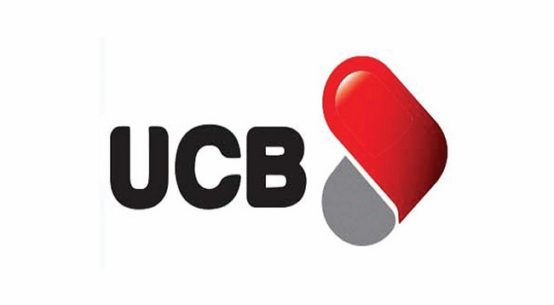The government should re-examine its budget to trim the outlay by Tk 500 billion through expenditure-plan adjustments. Administrative costs, subsidies and other government spending could be reduced, while bank borrowing should be limited to less than Tk 900 billion, according to economist Dr Ahsan H Mansur.
Dr Mansur, executive director of the Policy Research Institute of Bangladesh (PRI), strongly urged a reconsideration of these measures before the national budget for FY25 is passed. The budget, which was presented to Parliament last week, outlines Tk 1.375 trillion in bank borrowing.
In a presentation titled ‘Budget Insights: Challenges and Opportunities’ organised by the Metropolitan Chamber of Commerce and Industry, Dhaka (MCCI) and PRI, Dr Mansur also recommended reviewing the possibility of eliminating redundant ministries and agencies, such as the Ministry of Textiles & Jute.
He also suggested selectively reducing or eliminating subsidies and renegotiating power purchasing agreements with Independent Power Producers (IPPs).
While advocating for a combination of fiscal and monetary tightening, he urged the central bank for three key measures: not to monetise government debt, not to provide liquidity lifelines to ailing banks and to maintain an overall tighter stance for stable exchange rates.
At the programme, MCCI President Kamran T Rahman said some aspects of the budget — such as not eliminating cash transaction limit to avail corporate tax cuts, offering black money whitening scopes and the minimum tax provisions — have disappointed businesses.
The event was moderated by Habibullah N Karim, vice president of MCCI. Dr Mashiur Rahman, economic affairs adviser to the prime minister, was the chief guest.
“It is not possible to dictate the existing patterns overnight, the budget does include some steps in that direction,” Dr Rahman said. He added that the liberalisation of exchange and interest rates is on the right track.
Dr Rahman suggested that local industries focus on project viability rather than solely seeking interest rate and exchange rate liberalisation.
He said investment quality matters for sustainable debt financing.
Regarding tax breaks for investors, he proposed forming an advisory body, as the National Board of Revenue (NBR) may not have the necessary resources for such decisions.
Adeeb H Khan, chairman of the MCCI Tariff and Taxation Sub-Committee, gave a presentation on the chamber’s behalf.
“Many companies may not meet the cash transaction threshold for availing the corporate tax cut, considering the country’s business practices,” he said.
He said the effective tax rate rises to 45 per cent due to minimum tax provisions. In the proposed budget, there are no tax incentives for both publicly listed and non-listed mobile phone companies.
PRI Chairman Dr Zaidi Sattar said policy divergence is an important factor in Bangladesh, as he pointed out a discrepancy: while the “Made in Bangladesh” concept is welcomed, but “sale in Bangladesh” is not.
He said the country currently relies more on protective tariffs than industry subsidies.
In his speech, Dr Ahsan H Mansur predicted the next fiscal year will be the year of macroeconomic consolidation, and will not be a year of high investment and growth.
He suggested exchange rate stability through tighter monetary policy as key to achieving inflation targets. He hoped inflation might fall within the next six to nine months due to budgetary measures.
Dr Mansur urged the Bangladesh Bank to avoid monetising government borrowing and providing liquidity support to struggling banks.
Labelling increased government borrowing from the banking system an “area of serious discomfort”, he said this is squeezing credit flow to the private sector.
Public sector debt has increased by around $7.4 billion from December 2022 to December 2023, while private sector borrowing decreased by $3.4 billion during the same period, according to the economist.
However, Dr Mansur noted that inflation control efforts have helped the government reduce borrowing from the central bank by Tk 317.83 billion.
Deposit growth in FY23 roughly matched the total domestic bank borrowing for budget financing. However, in FY24, if the stipulated Tk 1.55 trillion Bank financing materialised, it would exceed deposit growth by a big margin.
Dr Mansur offered a more cautious outlook on domestic revenue collection.
He estimated that the country could realistically collect a maximum of Tk 4.40 trillion in tax revenue for FY25, falling short of the targeted Tk 4.80 trillion. This projection considers the current fiscal year’s 17.1 per cent revenue growth and the projected shortfall.
Dr Mansur raised questions about the social safety net allocation in the budget. He said it overstates the actual amount due to the inclusion of pensions, national savings certificate interest and agricultural subsidies.
Dr Mansur reiterated his call for banking sector reform, labelling it “a crying issue” not addressed in the proposed budget. He said “policy paralysis” is not an option.
“…the level of non-performing loans could be as high as Tk 4.0 trillion or close to 22 per cent of total assets of the banking system. For some banks, the level of NPL is as high as 60-70 per cent of their assets, making them de facto bankrupt,” he said.
He said there must be reforms and automated tax administration.

